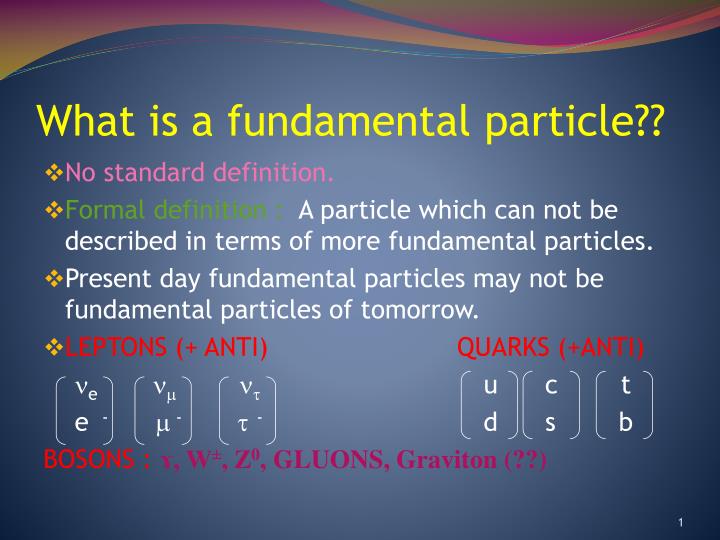In the realm of particle physics, the classification of fundamental particles has traditionally adhered to the framework established by the Standard Model. This theoretical construct posits that certain entities, labeled as “fundamental particles,” are the elementary building blocks of all matter. Among these, electrons have long been central to scientific inquiry and understanding. However, contemporary investigations have rendered this classification increasingly contentious. This article delves into the intriguing question: Are electrons still considered fundamental particles?
The electron, a negatively charged subatomic constituent, plays a pivotal role in the atomic structure by facilitating the interactions that form chemical bonds. Initially, electrons were characterized as point-like particles with no discernible internal structure. This fundamental characterization has held sway in physics for decades, but recent explorations into the nature of matter have begun to challenge our preconceptions.
To contemplate the status of electrons within the fundamental particle framework, it is crucial to examine the criteria by which “fundamental” is defined. Traditionally, fundamental particles are those that are not composed of smaller components. They do not exhibit substructure—thus, they are often considered to be the most basic elements in the vast tapestry of physical reality. However, the notion of substructure has been evolving.
Recent advancements in high-energy physics and experimental techniques have yielded tantalizing glimpses into the possibility that even the seemingly immutable categories of fundamental particles may not be as definitive as once presumed. High-energy particle collisions at facilities like the Large Hadron Collider (LHC) have raised profound questions about the true nature of particles like electrons. While they appear to lack subcomponents, some theoretical frameworks, such as string theory, suggest that what we perceive as fundamental particles might instead be manifestations of more complex, underlying entities.
String theory posits that the fundamental constituents of the universe are not point-like particles, but rather one-dimensional “strings” that vibrate at particular frequencies. These vibrations give rise to the characteristics we attribute to particles, including mass and charge. In this context, electrons may not be fundamental in the strictest sense; they could represent the lowest vibrational state of an intricate string structure. This paradigm shift questions not only the classification of electrons but also the very essence of what constitutes reality at a fundamental level.
Further complicating this discourse are the implications of quantum mechanics. The behavior of electrons cannot merely be encapsulated by classical physics. Their wave-particle duality, along with the phenomena of quantum entanglement and superposition, indicates that electrons possess properties that transcend simple categorization. The probabilistic nature of quantum mechanics challenges our ability to firmly place electrons within a dogmatic hierarchy of particles.
Additionally, the concept of “emergent properties” emerges as a compelling consideration in the ongoing exploration of particle physics. An emergent property arises when collective interactions at a fundamental level lead to phenomena that cannot be attributed solely to the individual constituents. In this regard, while electrons may be treated as fundamental particles in many practical applications, their interactions within atoms and molecules engender complex behaviors and characteristics that go beyond their simplistic definition.
This raises the philosophical conundrum of whether the classification of electrons should remain static or evolve alongside our expanding scientific understanding. If electrons are indeed subject to emergent behavior and potentially possess underlying structures, then redefining their status as fundamental may not only be warranted but necessary to align our models with observed phenomena.
Alongside theoretical explorations, practical considerations also bear weight in the discussion surrounding electrons. The assertion of their fundamental identity has profound implications for various domains, including quantum computing and nanotechnology. The manipulation of electron states underpins the development of quantum information systems, harnessing the very principles that challenge their fundamental status. As technology progresses, so too does the demand for a refined understanding of these particles, which could yield effectiveness in not just scientific understanding, but also technological innovation.
The discourse surrounding whether electrons should maintain their status as fundamental particles spirals into discussions about the overarching themes of scientific discovery. Historical precedents showcase how shifts in perspective can fundamentally alter our understanding of the universe. For instance, the demystification of the atom in the early 20th century paved the way for a revolution in chemistry and physics alike. The current inquiry into the fundamental nature of electrons heralds a similar potential, urging researchers to contemplate deeper layers of reality.
As we chart a course through the intricate webs of particle physics, the question of whether electrons are still regarded as fundamental particles is emblematic of a larger, ongoing quest for knowledge. It encapsulates the excitement of confronting the unknown, the allure of theoretical exploration, and the relentless pursuit of truth that defines the scientific endeavor. Engaging with this question through a nuanced lens invites not only physicists but also philosophers and curious minds alike to ponder the fabric of the universe.
In conclusion, while electrons have historically been classified as fundamental particles, emerging theories and experimental evidence compel us to reconsider this designation. The intricate quest for understanding continues to unfold, evolving with each discovery and theoretical pronouncement. Thus, the journey to grasp the nature of electrons — and their potential substructure — stands not merely as a scientific investigation but as a profound reflection on our place within the cosmos.












